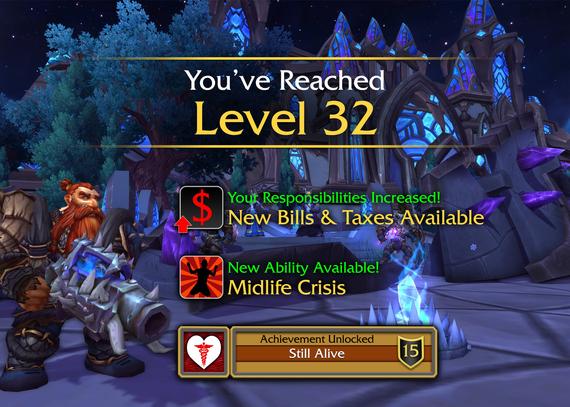When I was a child, I could not understand when people said, ‘Money is difficult to earn’. Later when I had my first part time job as a waiter, I remembered thinking that earning money was not that difficult afterall. I could earn my $5.50 per hour without much trouble. But looking back, it was simply because the situation for me as a student working part-time was different. The expectations for me were lower, the job was relatively easy and I had no family to feed nor debt to pay. In fact, I did not even need to feed myself, much less worry about the everyday bills. Bosses scolded us at times, but I was at a stage where I did not really need the job. Even if I lost that job, I could find another one easily because my salary was just so low. Perhaps it was a combination of all these factors which made me still believe at that point in time, money was not that difficult to earn.
When I graduated from university, getting a decent job was more pressing. While I had paid off my university debts by working very hard during my school days, I still needed to find a job fitting for the education level I had. I had spent 3.5 years getting a bachelors degree, having cut short half a year. I could not be getting the same kind of job as a polytechnic graduate. It was not about looking down on a job, but simply that the reward (salary) had to match the investment (time, effort, university fees). The above is the first level of work pressure directly related to finance most of us have. If you are a polytechnic graduate, you do not find a job on the level of a secondary school graduate, and so on. People naturally want to find a job with a salary matching their education level.
As we grow slightly older, we spend more on other things – social gathering, personal items like cars or luxury bags, holidays and daily expenses etc. There is also the need to save and get ready for the future – marriage and family building, which essentially wiped out our bank accounts and place some into debt. The finance factor is why many of us desperately cling to our job. Many of us have a job which pays the bills and supports our lifestyle. If not, the default action would be to look for the next better job while holding on to the current one, and repeat the cycle till we reach a comfortable stage regarding our salary.

The fact that we are stuck with a job leads to a lot of frustrations at work. Many of us are in a job we dislike, have no passion in and are just dragging our feet to work everyday. But since we are stuck with a job, it is important to do what we can to make it a better experience. To do so, first we have to look and understand reality for what it is and from there change our perspective. Secondly we have to see what practical actions we can do to make it better for ourselves.
The Boss
Many staff have issues with their bosses. As workers we all seem to have an idea that bosses should be hardworking, capable, caring, able to see the big picture and dare to take responsibility etc befitting of their positions. The fact that many bosses are lacking in the above qualities caused much dissatisfaction everywhere. But that is only the picture of the ideal boss. Sure, there are certainly those who fit all that qualities. But it is more often than not, that bosses are lacking in more than 1 area.
We take the top bosses of the old civilisations as an example – the kings of the olden days. There were tyrants, warmongers, decadent kings, puppet kings and the celebrated good wise kings. From the good to the bad, the capable to the useless, the top leaders appointed by the heavens or the gods were a wide range of humans. Similarly, the democratically elected presidents or prime ministers of today are not much different. So then, is it strange that many of our direct bosses who are just commoners like you and me are no different?
Of course, if we have a slacker for a boss, we are angry. I get upset when my boss does not care about his staff. I get angry when my lazy boss pushed all the work to me and claimed the credits as his own. I am disappointed when my boss decides to place his ego above doing what is right. It is natural to have all these feelings. While it is ideal to have a good boss, it is unreasonable to expect that all or most of our bosses will be good. It is also certainly even more ridiculous to expect our bosses to be aligned with our characters. Think of this last sentence carefully. How many of us are actually expecting our bosses’ values and characters to be aligned to us rather than us being aligned to them? Leaving aside whether our bosses are actually decent human beings or not, the fact that they are of a higher position than us, yet we are insisting that they have the same values and work style as us is simply setting ourselves up for frustrations.
To quote another example, often we see bosses who make seemingly stupid decisions which put a lot of unnecessary load on the staff. But that is because you did not stand on his perspective. To him, piling up all the extra work on you serves to help him score additional points in front of his bosses, or to add multiple layers of protection for himself should things go wrong. It does not matter to him if the team he manages is dying or not. To him, the team exists for him to step and go up another level. That is all that matters. Note that I am not saying that we have no right to be angry. Nor am I saying that I agree with what these kind of bosses do. Knowing their rationale does not mean we have to agree, nor does it mean that we have to be like them once we sit in their positions.

That being said, we need to adjust our mindset and our expectations. Once you are clear of the reality, you will be able to sort out your emotions better, although it may not be done perfectly. I am still angry at my bosses everyday, but I do not let it get to me too much. Once I get off from work, I (try to) forget about it. When we become bosses ourselves in the future, we try to be a good one, although most of us will also be some sort of a failure of a boss.
The Team
In every team there is at least the one parasite who does nothing, uses up all his sick leave and simply avoid work as much as possible. There are always people who play office politics as if they are fighting for the throne in the imperial palace. There are always gossips as if the office is the morning marketplace and there are always cliques and factions. Generally we have a common understanding that the nature of work can be bad, but it will be bearable if we have a good boss and a good team. The opposite holds true as well.
Yet for those of us who work in a team-based setting, where the incompetence of a team member directly affects us, the dynamics of the team holds an even greater significance in determining whether we work happy or not. But for some reasons, the bad team players are seldom gotten rid of unless they do something grossly wrong. That has much to do with the bosses.
There are 2 types of bosses – the first type wants to gather capable people around them, even if they have difficulties managing them. Capable workers generally have attitude problems, but a strong boss will prove that he or she is capable and qualified to lead them. They will have the team know that they are the bosses not because of their rank, but because they are competent enough to do so. The second type of bosses are the weak bosses. They are people who just want puppets who obey their every order. These kind of bosses will usually turn a blind eye towards issues such as a high sick leave rate, low quality work and a bunch of other problems. This encourages a team of puppets who will never defy or argue against the boss, but will also almost never work effectively or efficiently.
Knowing which category your boss or you as a boss falls under will help in reviewing the kind of team you have. Now for the constructive feedback. If you are a boss, go for a strong team. While the team may be hard to control at times, having a strong team allows you to work effectively and efficiency, pushing you to greater heights. Consistently increase your capabilities to lead and retain an ever increasingly stronger team. On top of your own work performance, know each of your team members well and build rapport with them. If you are the type who just want puppets, then it will be good for you to change soon. If you turn a blind eye to the issues of the team for the sake of having absolute obedience to you on the surface, the good workers will either be burnt out and leave or they will join them as one of the parasites. Slowly but surely, you will have a team that is gradually becoming more incompetent by the day as you are rewarding undesirable behaviours. In the end, you as the boss will suffer as your team does everything (politics, slacking, gossiping) but work.

If you are part of the team and your team belongs to the capable one, then it is slightly better. Even if it is out of your comfort zone, work hard and work well to improve your capabilities. If you are able to contribute, you will be better off. But either way, the capabilities which you have earned can never be taken away by others. It is yours even if you move on to a new place to work. If you are in a poor team, then you have to decide if you have to go or continue staying. If you want to continue staying, there are also 2 choices which can make your life better. The easy way out is to drop the quality of your work. You do not need to be a perfect worker. You just need to be a better worker than the rest, and the team is helping you by setting the bar so low. But I do not recommend this. You are just shortchanging yourself in the long run. The more difficult way is still the changing of your mindset, but this time you take on more work if you have to, earning the experience, network and capabilities before jumping off to a new place for a higher salary. As long as you change your perspective and find the meaning in what you do (for example doing the extra work to get the experience, network and capabilities), then your life will feel a lot less miserable. The meaning of your job need not be something noble such as contributing to the peace and functioning of society. It can be something as simple as: I work so that I can get the money needed to live my own life the way I want it to be.
Of course in real life things are often more complicated than what I mentioned above. But to make complex things become simple, then set a clear direction on what to do and move forward in achieving it is also something that will be good for all of us to learn.
The Organisation
Many people expect the organisation to care for them and to appreciate them for their service. Truth is the organisations do not. Organisations will only give politically correct bullshit to employees, telling them to take care of their mental health and that they are one big family and united we stand, that every employee is important to them and they engage in fair practices etc. While I certainly believe there are decent companies around, the overwhelming majority only cares about their own agendas.
First, we have to recognise our relationship with the companies or organisations as it really is. While organisations always preach loyalty and at times condemn staff who do not give their all to them, truth is organisations do not really practise the loyalty they preach to the staff. Often times we hear of companies retrenching workers without hesitation when they get too old and expensive, of companies squeezing their workers dry to increase a single ounce of productivity and even firing workers who make a small mistake just to appease unreasonable demands from the public or to cover the mistakes of their bosses.
Loyalty should work both ways. The subordinate gives his all to the boss, and the boss protects and take care of the subordinate well. If such a mutual arrangement cannot be achieved, then it can only mean one thing – a transaction, which makes everything different. Time and labour for money. No loyalty nor feelings involved. That is all. If you do not do well, I fire you. If you make a mistake, I sack you. If you are too old and expensive, I retrench you. If your boss makes a mistake and you are not capable enough to avoid being a scapegoat, out you go. The converse is also true. I find a better job elsewhere, I resign without hesitation. I do not like the place here, I start looking for another job. Why should I care if my leaving or staying will impact the organisation greatly in the short term?
The reason why people are sad and disappointed, angry and gave up is because people often have unrealistic expectations. While these are ideal, they are not realistic. The imbalance of contribution by the staff and the actual reward / treatment received does not tally with the expectations, causing much distress and unhappiness everywhere. Should one place himself in the right mentality, then one will be able to act accordingly in the right frame of mind and in the correct emotional state. Note that I am not saying to slack off and not do any work, but to do what you are supposed to do, get what you are entitled to get (eg annual leave) and that will be the end of it.
If we in charge of an organisation, we need to know just because everyone is doing it, does not mean it should be the way. On top of doing the right thing, there are practical implications as well. In any company, there are some good staff, the average majority and a few incompetent parasites. If we allow the managers to treat the staff unfairly, such as loading the work of incompetent staff onto the competent ones, then we are only encouraging incompetent staff to remain incompetent. The competent staff will either be burnt out from the overwhelming workload and quit, or lose motivation and become a mediocre staff. I have seen it happening, and it is happening all around the workforce everywhere. When that happens, your organisation will be unable to retain good staff. Slowly but surely your workplace will be filled with toxic members who are a burden on your company – leeching away free salary while getting nothing done. In certain companies, they offset this by hiring foreigners, squeezing them dry and letting them do all the work while the locals sit and slack off their day. Foreigners go to another country in search of a better life, and often times they are bounded by the work permit issue. That is they do not have the freedom to change jobs as and when they like, because every job they go to, the companies need to apply for a work permit for them. Not many companies are willing to do it, and those that do, often make full use of this.
Of course, once the foreigner achieves his or her permanent residence (PR), or manage to find another company to take him or her, the company will lose yet another worker. While the company can simply hire another foreigner and restart the cycle all over again, it does not change the fact that the company is still having leeches in the company, jamming the progress forward and wasting company resources. Resources which if used wisely, could have brought the company up another level. Additionally, the cost of training a new worker and getting him or her up to speed and to do things effectively and efficiently is not low. Then again, it also comes back to the boss of the organisation. Would you rather have a team of capable people who may be more difficult to handle, or would you rather have a team of puppets who only know how to say: ‘Yes sir’?
Not every organisation is in the form of a company. From private profit-driven companies to government agencies, from charity organisations to even religious institutions, the same problem will be present. Should an organisation not care about its people, then sooner or later all the good workers will be gone, potentially causing a collapse of the organisation.

Self
Many times we do not know where we stand. For those of us who are more capable, it is common for us to be loaded up with responsibilities of not only our useless peers, but perhaps of our bosses too. That often gives us the impression that the company cannot function without us and that we are important to the organisation. Yet when we review the treatment and welfare we receive, the amount of effort we put in and the reward we get does not match, creating a sense of dissatisfaction.
Know that while in the very short term, the lack of our presence may cause severe disruptions to one part of the operations or function of the company, but it is not as if without us the company would die. Nobody is indispensable. We can be sacked at any time, the CEOs of a company can be replaced easily and even the president of a country can be impeached. Each one of us is dispensable and even expendable. The moment we lived out our values is the day we can be prepared to be discarded.

Know exactly where you stand in the company and the weight of the position you hold. Most of us are not that important afterall.
What We Can Do
Knowing the reality of the relationship between us and our bosses as well as the company we work for is one step towards adjusting ourselves mentally and emotionally at work. Do note that I am not encouraging bad attitude at work. We should not slack off at work, but strive to work for our salary. If the company pays us $1, we will do that $1 for them. Work efficiently and effectively so that you complete your tasks on time, then get home and use your time to work for yourself. Only you will treat yourself well. Only you will not short-change yourself.
Next, be very clear your objective of going to work. You are going to work for the money. With the money you support your lifestyle and your family. With the money you are able to live without worry for food and housing. So first you have to ask yourself, despite the nonsense you face at work, is the money you are being paid decent enough for you to endure all that you face? If yes, then you should continue to report to work with a changed mindset. If not, keep searching for another job. Every workplace has its good and its bad. Look hard at your company and see what you can gain from the resources over there. Every company has its own resources for the staff, be it the tangible or non-tangible ones. From free meals to dental claims, from exposure in the industry to even being near to your house, every resource has a value. Make use of these resources in a legitimate, clear and aboveboard way and work out the value of every single resource to help you when deciding to stay or to jump ship.
See the reality for what it is. Take proactive steps to adjust yourself and get out of the situation if need be. Think of what you can do and what you can morally make use of in every situation.
Showing 1 - 3 out of 3
Page 1 out of 1
| - | Shop Products | Price | |
|---|---|---|---|
|
|
$99,999.00
|
||
|
|
$1.00
|
||
|
|
Price range: $69.00 through $99.00
|


